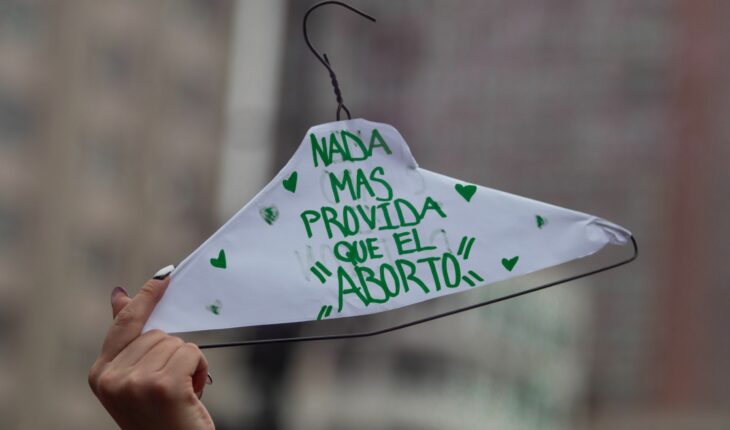In El Salvador, 181 women who experienced obstetric emergencies between 1998 and 2019 were sentenced to sentences of up to 50 years in prison for the crimes of abortion or aggravated homicide. This is a consequence of a legal system that criminalizes abortion without exceptions.
Currently, despite a ruling by the Inter-American Court of Human Rights (IACHR) derived from one of these cases, seven women still face criminal proceedings.
In its research From Hospital to Prison, the Citizen Group for the Decriminalization of Abortion of that country analyzed the clinical and judicial records of women who, upon reaching the public health system for spontaneous abortions or premature births, faced a system of persecution against them.
The analysis shows the systematic violation of the human rights of women who live obstetric emergencies. Since criminalized women generally do not have a timely defense, they do not have a strategy that puts their innocence at the center, explained the coordinator of alliances and political advocacy of the Group, Sara García Gross.
The specialist emphasizes that when this happens it is about reproductive injustices that lead to systematic violations of women’s rights and gives as an example the case of Manuela v. El Salvador, a woman who in 2008 was denounced by health personnel after facing an out-of-hospital delivery that resulted in hemorrhage.
“What seems extremely important to us about Manuela’s sentence is that her story is that of these 181 women. What she faced from her obstetric emergency to the complaint of the health personnel of a public hospital; All the horrors she experienced, the separation from her family, all the cruel, inhuman and degrading treatment, are the cases of the women who are facing this story,” says the activist.
For her, the struggle for women’s freedom in El Salvador has been relentless since 2009, when the first release of Karina, a criminalized woman who had faced a story similar to Manuela’s, was achieved.
MEXICO CITY, 29JUNE2022.- The organization Amnesty International, a human rights defender, and various feminist groups demonstrated in front of the US embassy in protest of the decision issued by the Supreme Court of that country that ruled the end of abortion protection.
PHOTO: ROGELIO MORALES /CUARTOSCURO.COM
From that case, the reality of the persecution of women derived from the absolute criminalization of abortion came to the surface and became evident. With the sentence, a systematic situation has been verified but also a context that does not change.
“Unfortunately, cases of reproductive injustice will continue to be presented, because we will continue to sustain a punitive framework that is not really responding to the needs and concrete realities of women in the country,” García Gross said.
Since Karina’s case, El Salvador celebrated the release of 64 women in June of this year – thanks to solidarity, feminist, legal and psychosocial accompaniment – through reviews of sentences and prison benefits.
What has happened to abortion cases?
The case of Manuela v. El Salvador is not only emblematic for having contextualized the country’s situation regarding the absolute prohibition of abortion, but because it shows that the majority of complaints against women arise in the health system, says Catalina Martínez, a Colombian feminist activist and regional director of the Center for Reproductive Rights for Latin America and the Caribbean.
“What Manuela’s case establishes, which is absolutely novel and important, is that it defines how the medical professional secrecy of health professionals should be protected. What the Court says is that when it comes to sexual and reproductive health services, the protection of medical professional secrecy must always prevail over any duty to report,” says Martínez.
This standard is applicable not only to El Salvador, but to all states that have recognized the competence of the IACHR, guarantees that the health system is safe and women can seek sexual and reproductive health services without fear of going to jail or being denounced by a medical professional.
However, this has to be realized – specifically in El Salvador – through the creation of certain protocols that regulate medical professional secrecy, attention to obstetric emergencies and comprehensive sex education.
Despite the fact that the co-defendants in the case of Manuela v. El Salvador, the Center for Reproductive Rights, the Feminist Collective for DevelopmentCal and the Citizen Group for the Decriminalization of Abortion, had the expectation that the authorities of that country would give a first report regarding compliance with the sentence, the Salvadoran State requested an extension.
Martínez points out that El Salvador has partially complied with the recommendations, since it issued protocols that are a sign of will, but they still need to be worked on in depth so that they contain all human rights standards and can be implemented.
However, a breach prevails in the sense that it becomes a reality for the entire territory, as well as with respect to the issues of reparation to the family, recognition of responsibility and public apologies.
“We are talking about seven cases that continue to face prosecution, that are facing criminalization; this is a way of showing how we still have a lot of work to do so that this sentence is really fulfilled,” adds García Gross.
While progress on the protocols is important, there is a willingness to dialogue and build them in a way that truly adapts to the realities and needs of women facing persecution.
He recalled that another hearing is approaching at the IACHR for Beatriz, a woman who was denied an abortion health service. In this case, reparation is sought for the family, but also measures of non-repetition that lead to changes in the restrictive regulatory frameworks in the penal code.
Regional processes as a source of hope
Throughout Latin America, different strategies have been organized to place the issue in the public debate and achieve the effective release of women who have gone through litigation.
This in a context in which the decriminalization of abortion in Latin America is marked by contrasts: while Colombia achieved this year the most advanced legislation, which legalizes abortion nationwide until the 24th week, Central America still faces lags that translate into legal battles to ensure that women like Manuela are not criminalized when they face obstetric emergencies.
“All the United Nations committees, when they have reviewed El Salvador, have pronounced on this issue and have issued recommendations because we have made an impact on each of these committees to make it happen, and we have accompanied with incidents of communication and mobilization that have helped us to keep this issue on the agenda, that there is pressure from society and also so that the feminist movement, in El Salvador and throughout the region, can mobilize for these issues,” says activist Catalina Martínez.
Although there are no specific figures at the regional level, criminalization against women continues to occur in almost all Latin American countries, but especially in those where there are total prohibitions.
However, it also prevails in those where the crime of abortion continues to exist, regardless of whether there are grounds through which it can be accessed or whether voluntary abortion is decriminalized up to a certain number of weeks.
An example of this is Colombia, which reached a historic resolution this year but since 2006 had three grounds for accessing abortion: when the life and health of the woman was at risk, when the pregnancy was the result of rape and when the fetus had a malformation incompatible with life.
However, from the documentation carried out by the Center for Reproductive Rights with different civil society organizations to review how access to abortion was for these reasons, they could notice that the persecution of women had not decreased since 2006. On the contrary, it increased. From that year until 2021, 5,000 cases were opened at some point against women in Colombia.
“As long as abortion remains in the penal code, as long as it remains a crime, regardless of whether it has grounds to access, there will continue to be persecution of adolescent women and girls,” said the activist.
According to Martinez, abortion continues to be sent as a crime and not as a health service or a right.
Therefore, in different parts of the region – in Colombia specifically through the Just Cause initiative – new struggles have been undertaken with the aim that abortion is not regulated in penal codes, but in health legislation, which would allow it to be seen as a service from that sector to combat with greater determination the unjust criminalization of women.
For activists, the struggle for the decriminalization and legalization of abortion must be regional, and the struggles of Argentina, Colombia and Mexico that are generating transformations and making history are hopeful because they have managed to influence not only the laws but also the commons.Gums.
In El Salvador, activists know that they live within the framework of a government that sustains a series of setbacks in terms of human rights and systematic violations.
However, for them it has been key that the agenda of the feminist movement is not blurred in these hostile contexts. For this reason, they presented an initiative to reform Article 133 of the penal code last year, which was archived practically after two weeks without dialogue or discussion.
“That is why social decriminalization is so important, and above all, the processes that we are collectively carrying out before the inter-American human rights system, because they are right now that window of opportunity,” concludes García Gross.
What we do at Animal Político requires professional journalists, teamwork, dialogue with readers and something very important: independence. You can help us keep going. Be part of the team.
Subscribe to Animal Político, receive benefits and support free journalism#YoSoyAnimal





